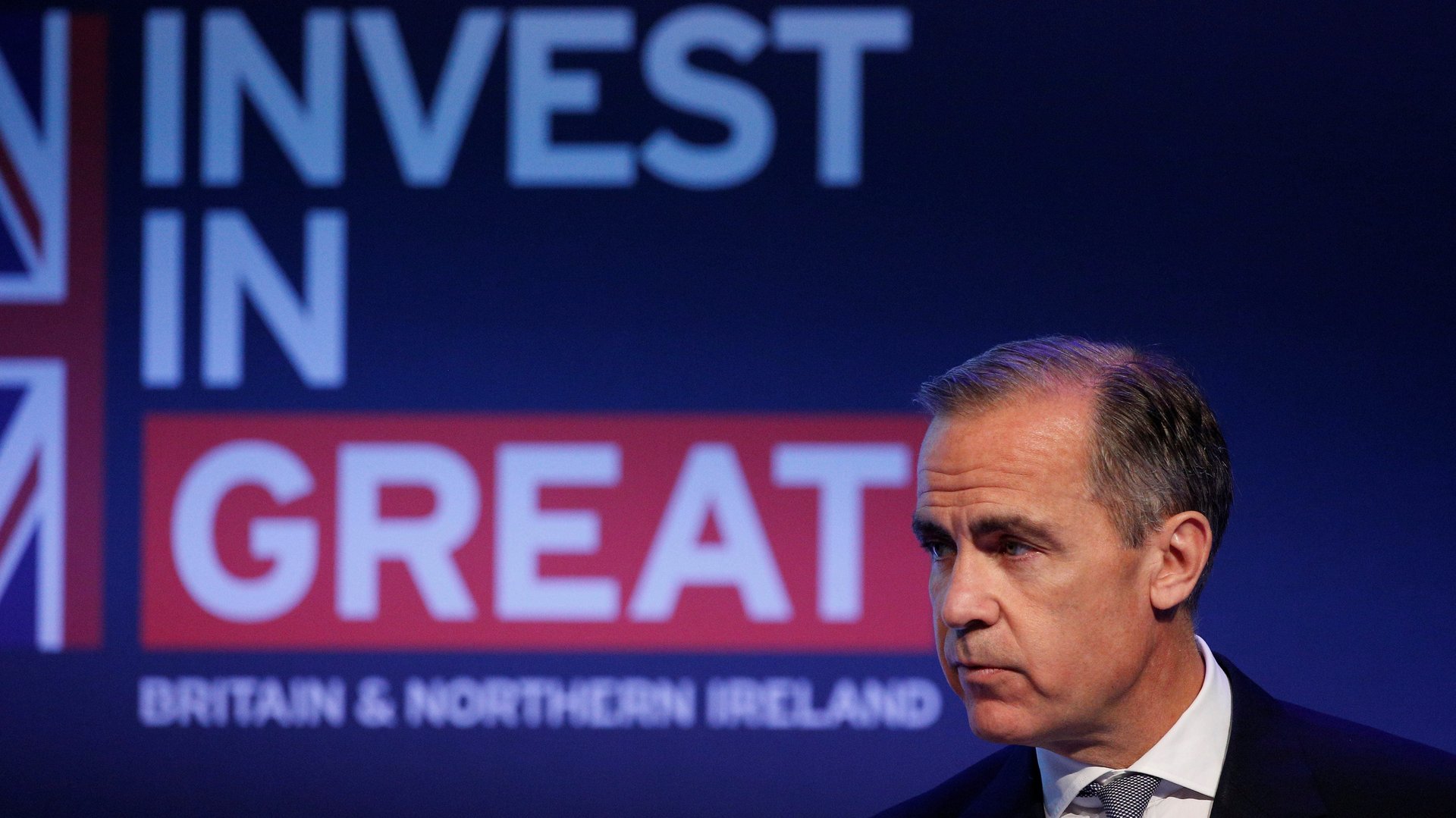One of the UK’s biggest fintech startups laid out how disastrous Brexit will be
London, England


London, England
Her Majesty’s Treasury gathered the great and the good of the fintech world for its first conference on the subject today, the climax of a week’s worth of fintech events in London. Both the chancellor and the Bank of England’s governor gave speeches, praising the innovative companies that have made London their home and added an estimated £7 billion ($8.75 billion) to the British economy.
One of those innovators is Taavet Hinrikus, a co-founder of TransferWise, which undercuts banks on fees and exchange rates for remittances. His firm is valued at just over $1 billion, making it a rare European “unicorn.” Hinrikus, an Estonian, has been vocal about his opposition to Brexit. Speaking at the conference today after the top officials, he doubled down on his position, breaking ranks with the assuring words from the chancellor and governor (pdf).
“The world has changed a lot,” Hinrikus said on stage. “If I was setting up TransferWise today, I probably would not choose London.”
Hinrikus pointed out that London’s status as the world’s “fintech capital” could be easily lost in a post-Brexit world. “We have no idea what Brexit means today,” he said, noting that cities like Singapore, New York, and Seoul were starting to “copy” the way the UK government and private sector have grown its fintech scene. “Post-Brexit maybe London will give the title away,” he said.
Transferwise employs 650 people around the world, and its headquarters is in London. The British capital’s access to an EU-wide talent pool made it an attractive base originally, Hinrikus said, noting that it was “a very exciting place for immigrants” like himself. But Brexit threatens access to the right workers. “Talent is the lifeblood of a growing business. To be a global business you need access to the best talent from around the world,” he said.
The chancellor said in his speech that the UK needed to be “better at nurturing homegrown talent” to develop the British economy. Hinrikus said, perhaps pointedly, “Homegrown or immigrants, it doesn’t really matter,” noting that immigrants who did make it to the UK also needed to “feel welcome” here.
One way financial firms lose out from Brexit is the loss of “passporting” rights across the EU, which allows them to be regulated in one jurisdiction, but to do business across the entire bloc. When the UK leaves the bloc, British firms will have to set up offices in the EU to do business there.
Hinrikus’ brutal honesty put a dampener on London’s “Fintech Week,” which was designed to showcase the capital’s attractions to venture capitalists scouting for investments, big banks looking to set up accelerators and research labs, and foreign tech giants—firms from Asia were frequently mentioned in conversations—expanding into new markets.